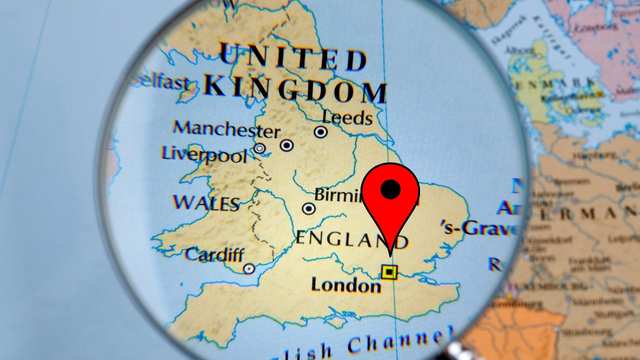Achieving success as a freelancer is not solely dependent on talent and passion; how you manage your professional image and your relationships with clients is equally crucial. Acquiring a virtual address in the prestigious city of Oxford, UK, is one of the most effective ways to project a local expertise and trustworthy image while building a global business. This solution, ideal for freelancers in terms of both cost-efficiency and functionality, will advance you not just in your work, but also in your professional standing in the business world.

Advantages of a Virtual Office
In an era where flexibility and professionalism are key, a virtual office in Oxford offers a myriad of benefits, particularly for freelancers looking to elevate their business presence. Here are some compelling reasons why a virtual address is an indispensable asset:
- Professional Image: A prestigious address in Oxford not only enhances your brand image but also instills confidence in your clients. It’s more than an address; it’s a representation of your commitment to quality and professionalism.
- Cost-Effective: Eliminate the overheads associated with traditional office space. A virtual office allows you to enjoy the prestige of an Oxford-based office without the associated rental costs, making it a smart choice for budget-conscious freelancers.
- Flexibility and Convenience: Work from anywhere, yet maintain a consistent, professional address. Whether you’re traveling, working from home, or splitting your time between locations, your virtual office remains constant, providing stability and convenience.
- Enhanced Business Services: Beyond the address, many virtual offices offer additional services such as mail handling, phone answering services, and access to meeting rooms, ensuring that your business needs are comprehensively covered.

By leveraging these advantages, freelancers can operate with the agility they need, along with the professional facade that clients respect and trust.
Meet Your Virtual Address in Oxford
Oxford, a city renowned for its academic excellence and historic significance, now also serves as your gateway to establishing a prestigious business presence. Our virtual address service is designed to provide you with more than just an address; it’s a comprehensive solution tailored for the dynamic needs of freelancers:
- Prime Location: Situated in the heart of Oxford, our virtual address places your business in a location synonymous with prestige and excellence. This prime location not only enhances your brand image but also positions you strategically on the business map.
- State-of-the-Art Services: Our virtual address offering goes beyond the basics. From professional mail handling and forwarding services to ensure you never miss important correspondence, to personalized phone answering services that keep you connected with your clients, we’ve got you covered.
- Technology-Enabled Efficiency: Embrace the convenience of technology with our user-friendly platform. Manage your services, view your mail, and book meeting spaces, all with just a few clicks. Our digital-first approach ensures that your virtual office is as agile as you are.
- Support and Security: Our dedicated support team is always on hand to ensure that your business operations run smoothly. With robust security measures in place, you can rest assured that your business correspondence is in safe hands.
By choosing our virtual address in Oxford, you’re not just getting an address; you’re getting a partner committed to supporting your freelance journey every step of the way.
Why Choose Us?
In a competitive market, choosing the right virtual address service can make all the difference. Here’s why our Oxford-based virtual address service stands out as the go-to choice for freelancers seeking to establish a formidable business presence:
- Unmatched Customer Service: Our commitment to your success is reflected in our exceptional customer service. We understand that your business needs can change rapidly, and our team is dedicated to providing prompt and flexible solutions to meet those evolving demands.
- Comprehensive Suite of Services: We offer more than just an address. Our full suite of services, including mail handling, phone answering, and access to meeting rooms, ensures that every aspect of your virtual office is professional, efficient, and tailored to your needs.
- Credibility and Trust: Having an address in Oxford is not just about location; it’s about associating your business with a legacy of excellence. This association fosters a sense of trust and credibility among your clients, giving you a competitive edge.
- Customized Solutions: We recognize that every freelancer’s journey is unique. That’s why we offer customized solutions designed to fit your specific business requirements, ensuring that you receive the support you need to thrive.
With us, you’re not just choosing a virtual address; you’re choosing a partner who is invested in your business and its growth. Experience the difference that a professional, reliable, and supportive virtual office can make for your freelance career.

Conclusion: Elevate Your Freelance Business with Our Virtual Address in Oxford
In the fast-paced world of freelancing, having the right support and resources is crucial for success. Our virtual address service in Oxford provides you with more than just a prestigious location; it offers a complete business solution designed to empower your freelance journey. From the professional image that our prime Oxford address bestows, to the comprehensive suite of services and unwavering support we offer, every aspect of our service is geared towards enhancing your business presence and efficiency.
Embrace the change that your freelance business deserves. Step into a world of professional credibility, operational excellence, and unparalleled support with our virtual address in Oxford. Connect with us today to explore how we can be a part of your success story.

